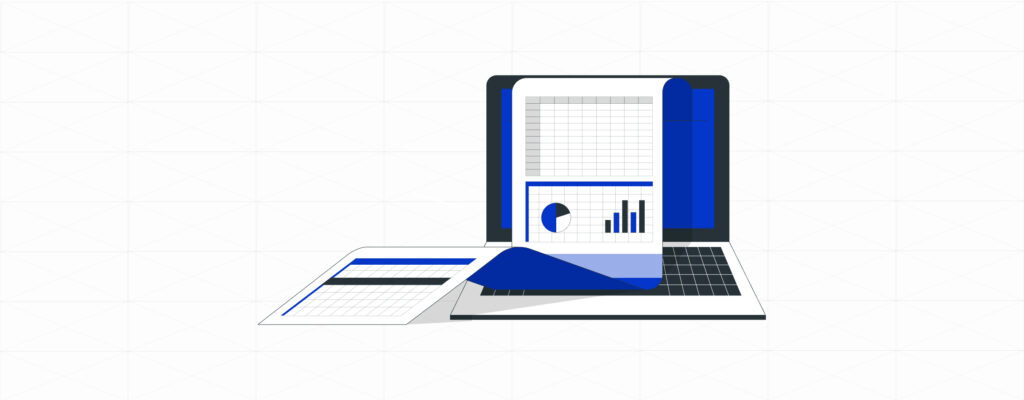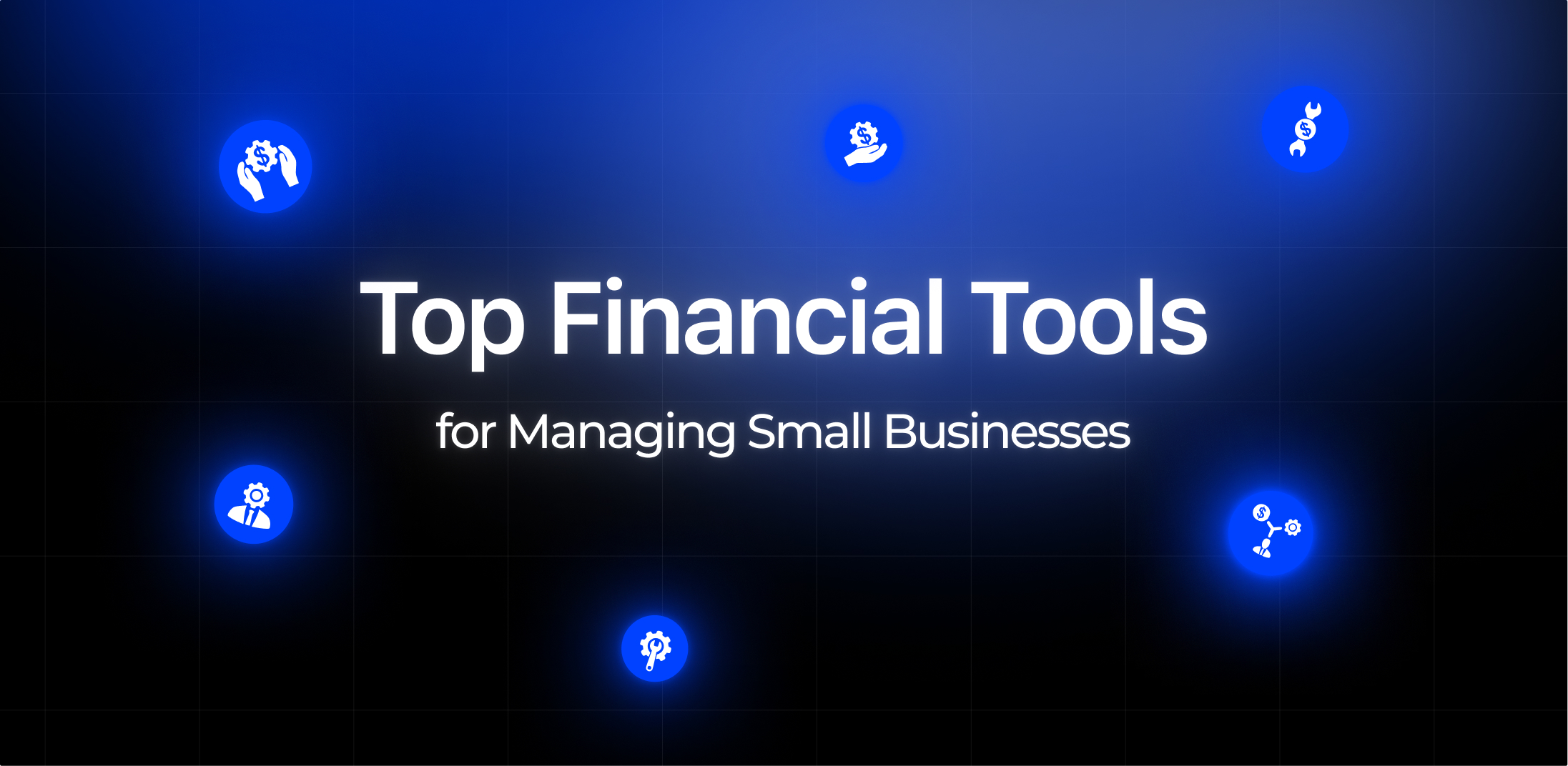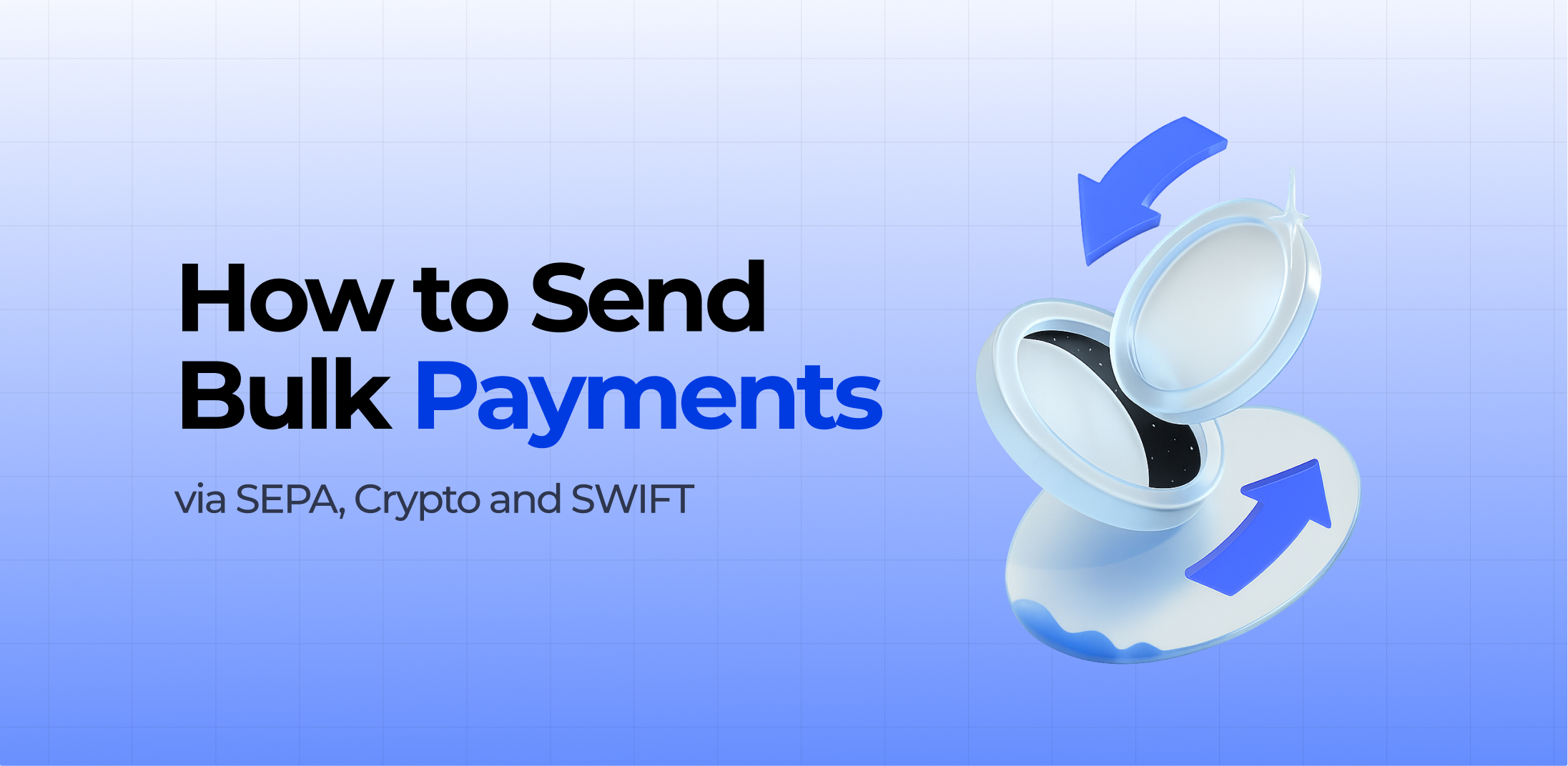Financial management is a critical component of running a successful business. Effective financial management tools can help organizations track income, expenses, inventory, cash flow, and other key financial metrics, enabling better decision-making and long-term planning. This introductory section will provide an overview of the essential financial management tools that businesses can leverage to streamline operations, improve financial visibility, and drive growth.
The Importance of Financial Management Account Tools
Proper financial management is crucial for businesses of all sizes. It allows organizations to monitor their financial health, make informed decisions, and plan for the future. Without the right tools, businesses may struggle to keep track of income, expenses, and other financial data, leading to poor cash flow management, missed opportunities, and potentially devastating consequences. Financial management tools automate many accounting and bookkeeping tasks, providing a centralized platform for managing a company’s finances, reducing the risk of errors, and freeing up time for strategic planning.
Key Considerations When Selecting Financial Tools
When choosing financial management tools, businesses should consider several key factors, including budget, security, scalability, cloud capabilities, and automation/efficiency. The selected tools should fit within the organization’s budget and provide the necessary functionality without unnecessary complexity or features. Security is also a critical concern, as financial data must be safeguarded against unauthorized access and data breaches. As a business grows, the financial tools should be able to scale to accommodate increased transaction volume, user access, and reporting requirements. Cloud-based solutions offer the added benefits of remote accessibility, automatic updates, and reduced IT infrastructure costs. Finally, the tools should streamline financial processes through features like automatic invoicing, expense tracking, and integrated reporting, ultimately improving efficiency and reducing the time spent on manual tasks.
Overview of Financial Management Tools
Accounting platforms like QuickBooks and Xero offer a centralized way to handle income, expenses, accounts payable and receivable, and financial reporting. Budgeting tools such as Mint and YNAB assist businesses in planning and tracking finances, ensuring spending aligns with revenue and optimizing cash flow. Meanwhile, inventory tracking systems—often integrated into ERP software—help monitor stock levels, predict demand, and streamline supply chains, directly influencing financial performance.
By combining these tools, businesses can gain clearer financial insights, make data-driven decisions, and strengthen their long-term financial health. The following sections will provide an in-depth look at each tool’s key features and benefits, along with practical guidance for selecting the right solutions for your organization.
Key Considerations When Selecting Tools

When evaluating financial management tools, there are several key factors businesses should carefully consider. Balancing the budget is a crucial aspect, as tools should align with the company’s financial resources and provide cost-effective solutions. Data security is also of paramount importance, as financial data is highly sensitive and requires robust protection measures, especially in the age of cloud-based technologies.
Scalability and Cloud Capabilities
The selected financial management tools should be scalable, able to accommodate the growing needs of the business as it expands. Cloud-based solutions offer the advantage of enhanced scalability, allowing for seamless integration and accessibility from anywhere, while also providing the benefit of automatic software updates and backups.
Automation and Integrations
Automation is another essential consideration, as it streamlines financial processes, reduces the risk of human error, and ultimately enhances efficiency. Tools that offer seamless integrations with other business systems, such as accounting software, CRM platforms, and HR systems, can further optimize financial management by consolidating data and providing a comprehensive view of the organization’s financial health.
Reporting and Consolidation
Comprehensive reporting features and seamless data consolidation from multiple sources are essential for informed decision-making. Financial management tools should provide customizable reports, enabling businesses to generate detailed financial statements, real-time insights, and analytical dashboards that offer a clear view of financial health and performance.
By thoroughly assessing these critical factors, businesses can choose financial management solutions that match their unique requirements, enhance financial oversight, and drive sustainable growth and success.
Top Financial Management CFO Tools
In the ever-evolving landscape of business operations, the need for robust financial management tools has become increasingly crucial. These tools serve as the backbone of efficient and effective financial planning, accounting, and decision-making. This section provides an overview of some of the most popular financial management tools, highlighting their key features, pros, and cons.
Xero is a cloud-based accounting software that offers a comprehensive suite of tools for small and medium-sized businesses. It streamlines tasks such as invoicing, expense tracking, and financial reporting, making it easier for businesses to manage their finances. Xero’s user-friendly interface and integration with various third-party apps make it a popular choice among entrepreneurs and small business owners.
Expensify is a powerful expense management solution designed to streamline the tracking and reporting of business expenses. With its intuitive interface, users can quickly capture receipts, categorize spending, and generate detailed expense reports for reimbursements or tax filings. Its mobile-friendly design and seamless integration with popular accounting software make it a flexible choice for businesses of all sizes.
PlanGuru, on the other hand, is a comprehensive budgeting and forecasting tool that enhances financial planning and analysis. It provides robust features such as financial modeling, scenario analysis, and performance tracking, equipping businesses with the insights needed to make data-driven financial decisions.
Approve.com is a cloud-based spend management platform that streamlines the approval process for various business expenses. It integrates with accounting software and provides real-time visibility into spending, allowing organizations to better control and monitor their financial activities.
FreshBooks is a user-friendly invoicing and accounting software that caters to freelancers, small businesses, and professional service providers. It simplifies tasks such as invoicing, time tracking, and expense management, while also offering features like automatic late payment reminders and online payments.
Top Accounting And Payroll Management Software – Xero
Xero is a cloud-based accounting software that has become a popular choice for small and medium-sized businesses. Designed to simplify financial management, Xero offers a comprehensive suite of features that cater to the unique needs of growing companies.
One of Xero’s key strengths is its user-friendly interface, making it accessible for entrepreneurs and non-financial professionals. The platform’s intuitive dashboard provides a clear overview of a business’s financial health, with real-time insights into cash flow, invoices, and expenses. This level of visibility can be invaluable for small business owners who need to stay on top of their finances.
Another standout feature of Xero is its seamless integration with a wide range of third-party applications, such as payroll, inventory management, and e-commerce platforms. This integration allows for a more streamlined and efficient workflow, reducing the need for manual data entry and enabling greater automation of financial processes.
Xero’s invoicing capabilities are also highly regarded, with the ability to create and send professional-looking invoices, manage overdue payments, and track the status of bills. This feature helps small business owners maintain better control over their accounts receivable and cash flow.
While Xero is generally praised for its ease of use and comprehensive features, it’s important to note that the software may not be the best fit for all businesses. Some users have reported occasional glitches or connectivity issues, and the pricing structure can be a consideration for very small or start-up companies.
Overall, Xero stands out as a robust and user-friendly accounting solution that can be particularly beneficial for small and medium-sized businesses looking to streamline their financial management processes. Its cloud-based nature, integration capabilities, and intuitive interface make it a popular choice in the market.
Expense Tracking – Expensify
Expensify is a powerful expense tracking and reporting tool that streamlines the often tedious process of managing business expenses. At the core of Expensify’s functionality is its mobile receipt scanning capability, which allows users to easily capture receipts on-the-go using their smartphone camera. This eliminates the need for paper receipts and manual data entry, saving valuable time and reducing the risk of losing important expense documentation.
Beyond just receipt scanning, Expensify integrates with a variety of accounting platforms, such as QuickBooks, Xero, and Netsuite. This seamless integration allows expense data to be automatically synced and categorized, making the expense reporting process significantly more efficient. Employees can simply submit their expenses through the Expensify mobile app or web interface, and the data is then routed to the appropriate approvers and the general ledger, reducing the administrative burden on both employees and finance teams.
Expensify also offers advanced features like mileage tracking, per diem calculations, and multi-level approval workflows, making it a comprehensive solution for businesses of all sizes. With its user-friendly interface and robust integrations, Expensify has become a go-to expense management tool for organizations looking to improve their financial processes and gain better visibility into their spending.
Budgeting And Accounting Software – PlanGuru
For small businesses looking to streamline their budgeting and financial analysis processes, PlanGuru is a powerful yet user-friendly software solution. PlanGuru provides a comprehensive set of tools to help companies create detailed budgets, monitor financial performance, and make more informed strategic decisions.
One of the key features of PlanGuru is its ability to integrate seamlessly with a variety of accounting and business software, including QuickBooks, Xero, and Microsoft Excel. This integration allows users to easily import financial data and build budgets based on actual historical performance. PlanGuru’s robust forecasting and scenario-planning capabilities then enable businesses to model the impact of different assumptions and variables on their future financial outlook.
PlanGuru also offers a range of reporting and analysis features, including customizable financial statements, key performance indicators, and variance analysis tools. These reports provide business owners and finance teams with valuable insights into the company’s financial health, helping them identify areas for improvement and make more strategic decisions. Additionally, PlanGuru’s intuitive interface and step-by-step guidance make it accessible for users of all skill levels, ensuring that businesses can quickly and easily implement effective financial management practices.
To help businesses get started, PlanGuru offers a risk-free trial period, allowing companies to test the software and experience its benefits firsthand before committing to a subscription. With its comprehensive features, seamless integrations, and user-friendly design, PlanGuru is an excellent choice for small businesses looking to take control of their financial management and drive their growth.
Inventory Tracking Management Tools

Effective inventory management is crucial for the operational efficiency of any business. Without real-time visibility into stock levels and the ability to track inventory across multiple locations, companies risk stockouts, overstocking, and a host of other issues that can negatively impact the bottom line. Fortunately, there are powerful inventory management software solutions available that can streamline these processes.
One such tool is SOS Inventory, a robust yet user-friendly platform that integrates seamlessly with popular point-of-sale (POS) systems. With SOS Inventory, businesses can gain full control over their inventory, from the moment items arrive at the warehouse to when they are shipped to customers. The software provides detailed reporting on stock levels, order fulfillment, and inventory turnover, allowing managers to make more informed decisions about purchasing, storage, and logistics.
SOS Inventory’s intuitive dashboard gives users a central hub to monitor inventory in real-time, receive alerts for low stock levels, and automate reordering based on predefined thresholds. The platform also supports barcode scanning and serialization, making it easy to track individual items and their associated data. Additionally, the software’s integration with leading e-commerce platforms and shipping carriers streamlines the order fulfillment process, reducing the risk of errors and delays.
By implementing a robust inventory management system like SOS Inventory, businesses can improve operational efficiency, minimize carrying costs, and enhance the overall customer experience. With real-time visibility and data-driven insights, companies can make more informed decisions, optimize their supply chain, and ultimately drive greater profitability.
Payroll and Tax Management Tools
Manually processing payroll and managing tax obligations can be a significant burden for small and medium-sized businesses. The complexities of calculating wages, withholding taxes, making timely payments, and filing accurate quarterly and annual reports often divert valuable time and resources away from core business operations.
Fortunately, there are specialized software solutions designed to streamline these critical financial management tasks. One such tool is BrightPay, a comprehensive payroll system that automates the entire payroll lifecycle. BrightPay handles the calculation of gross-to-net pay, ensures proper tax deductions, generates pay slips, and manages pension contributions — all while maintaining compliance with the latest legislative changes. By eliminating the manual effort required for payroll, BrightPay allows business owners to focus on growing their company rather than getting bogged down in administrative details.
In addition to automated payroll, integrated tax preparation is another essential capability for small businesses. Gusto, for example, not only processes paychecks but also automatically files all necessary federal, state, and local tax forms on the employer’s behalf. This includes making timely quarterly tax payments and providing employees with the appropriate year-end tax documents. The software’s intuitive dashboard gives business owners full visibility and control over their payroll and tax obligations, reducing the risk of costly penalties or errors.
Both BrightPay and Gusto are cloud-based solutions that can be easily implemented by organizations of all sizes. Their user-friendly interfaces and seamless integration with other accounting systems make them attractive options for streamlining critical financial management tasks and freeing up time to focus on strategic priorities.
CFO Platforms and Tools
The role of the Chief Financial Officer (CFO) has evolved significantly in recent years, encompassing a broader range of responsibilities beyond traditional accounting and financial reporting. Today’s CFOs are expected to be strategic partners, providing crucial insights and decision-making support to drive business growth and profitability. To fulfill these expanded duties, CFOs require specialized financial management tools that offer a comprehensive view of the organization’s data and enable them to shape future business strategy.
Comprehensive Data and Business Insights with NetSuite
NetSuite, a leading cloud-based enterprise resource planning (ERP) platform, provides CFOs with a centralized system that integrates financial data, operational information, and business processes. This holistic approach allows CFOs to gain a deep understanding of the company’s performance, identify areas for improvement, and make informed, data-driven decisions. By leveraging NetSuite’s financial management capabilities, CFOs can streamline budgeting, forecasting, and reporting, while also monitoring key performance indicators (KPIs) that are crucial for aligning financial strategy with overall business objectives.
Shaping Business Strategy with FinancialForce
FinancialForce, a cloud-based financial management and professional services automation (PSA) platform, equips CFOs with the tools to drive strategic decision-making. It enables them to establish financial objectives, develop comprehensive budgets, and track performance in real time. With enhanced visibility into profitability, CFOs can identify areas for improvement, make informed decisions, and refine long-term business strategies. Furthermore, by integrating financial and operational data, FinancialForce provides deeper insights into how financial choices influence overall business performance, fostering a more data-driven and agile approach to financial leadership.
Rippling’s Unified Financial Platform
Rippling’s approach to financial management is centered around the idea of a unified workforce platform. By consolidating a company’s financial tools and processes with its wider HR and IT systems, Rippling aims to streamline operations and provide a more holistic view of the business.
One of the key advantages of Rippling’s integrated financial management capabilities is the ability to seamlessly connect payroll, benefits, and other employee-related data with the company’s accounting and reporting functions. This integration eliminates the need for manual data entry and reconciliation, reducing the risk of errors and inconsistencies across the organization.
Moreover, Rippling’s platform allows users to automate numerous financial workflows, from invoice generation and bill payments to expense management and financial reporting. This level of automation not only saves time and reduces administrative overhead but also ensures that critical financial tasks are completed accurately and on schedule.
Beyond optimizing internal financial workflows, Rippling’s integrated platform enhances financial oversight and strategic decision-making. By centralizing financial data across the organization, it provides business leaders with real-time insights into overall financial health. This increased visibility supports more informed decisions, enabling proactive cash flow management, budgeting, and financial planning.
Rippling’s financial management approach harnesses integration and automation to streamline operations and deliver a comprehensive view of financial performance. By unifying financial tools with HR and IT systems, it offers businesses a powerful solution to improve financial efficiency and drive smarter, data-driven growth.
FAQs

One of the most common questions business owners have about financial management is whether they really need to use specialized software or tools. The short answer is yes – having the right financial management tools in place can make a big difference for any business, regardless of its size or industry.
Digital financial management tools provide a centralized, organized way to track income, expenses, invoices, payments, and other critical financial data. This helps business owners stay on top of their finances, make more informed decisions, and identify areas for improvement. Even if you have basic accounting knowledge, dedicated financial software can automate many time-consuming tasks and provide valuable insights that manual methods simply can’t match.
A frequent concern is identifying the most essential financial management tools. While each business has unique requirements, fundamental tools often include invoicing software, expense tracking, cash flow analysis, and core accounting functions like accounts payable and receivable. Budgeting and forecasting solutions are also crucial for strategic planning and financial goal-setting.
The ideal financial management approach depends on individual business needs, but the key is selecting a solution—or a combination of tools—that offers the necessary functionality in a user-friendly format. Today, many all-in-one platforms provide a full suite of financial management features, giving business owners seamless access to the insights and control needed to manage their finances effectively.
Fintech Evolution and Conclusion
The evolution of fintech, or financial technology, has transformed the landscape of financial management tools and practices. As the digital age has progressed, innovative technologies have empowered businesses and individuals to manage their finances more efficiently, intelligently, and accessible than ever before.
The Rise of Company Digital Finance
The emergence of digital finance, powered by fintech solutions, has revolutionized how we approach financial management. With the proliferation of cloud-based platforms, mobile applications, and data analytics, financial tasks that were once cumbersome and time-consuming can now be streamlined and automated. From invoicing and bookkeeping to budgeting and forecasting, the integration of digital tools has made it easier for businesses to maintain a firm grip on their financial health and make informed decisions.
Integrated Financial Management Solutions
A defining feature of contemporary fintech is the emergence of all-in-one financial management solutions. These advanced platforms unify essential financial functions—including accounting, cash flow tracking, and reporting—within a single system. By streamlining these processes, businesses gain enhanced transparency, operational efficiency, and control over their financial health. This seamless integration enables entrepreneurs and financial experts to leverage data-driven insights, optimize resource distribution, and foster long-term growth.
The Future of Financial Management Service
As fintech continues to evolve, the future of financial management is poised to become even more innovative and accessible. Emerging technologies, such as artificial intelligence and machine learning, are being incorporated into financial management tools, enabling predictive analytics, intelligent forecasting, and personalized financial insights. This convergence of cutting-edge technology and financial management is paving the way for a more dynamic, responsive, and empowered approach to business finance.
To sum up, the fintech revolution has reshaped financial management for both businesses and individuals, making it more efficient, data-driven, and accessible. The shift toward digital finance and integrated financial solutions has streamlined operations, enhancing decision-making and financial control. Looking ahead, the continued adoption of cutting-edge technologies will redefine financial strategies, enabling businesses to navigate and excel in the evolving digital economy.








